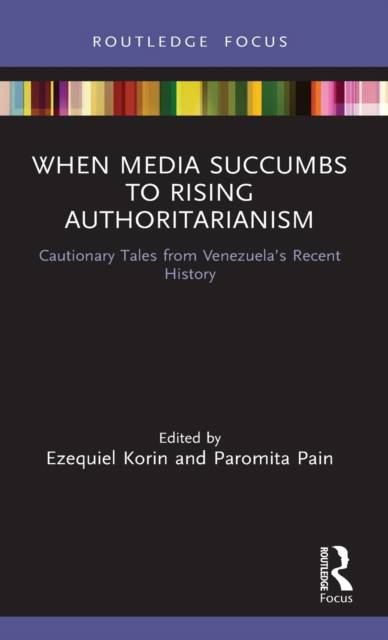
- Retrait gratuit dans votre magasin Club
- 7.000.000 titres dans notre catalogue
- Payer en toute sécurité
- Toujours un magasin près de chez vous
- Retrait gratuit dans votre magasin Club
- 7.000.0000 titres dans notre catalogue
- Payer en toute sécurité
- Toujours un magasin près de chez vous
When Media Succumbs to Rising Authoritarianism
Cautionary Tales from Venezuela's Recent History
Description
This book provides a transversal scholarly exploration of the multiple changes exhibited around Venezuelan media during the Chávez regime. Bringing together a body of original research by key scholars in the field, the book looks at the different processes entailed by Chavismo's relationship with the media, extending their discussion beyond the boundaries of the specific cases or examples and into the entire articulation of a nearly-perfect communicational hegemony.
It explores the wide-ranging transformations in the national mediascape, such as how censorship of journalistic endeavors has impacted news consumption/production in the country to the complexities of Venezuelan filmmaking during Chavismo, from the symbolic postmortem persistence of Chávez to the profound transformations undergone by telenovelas, from the politically induced migration of online audiences to the reinvention of media spaces for cultural journalism as forms of resistance.
Allowing readers to engage not only with the particular case studies or exemplars presented, but with the underlying cultural, economic, political, societal, and technical aspects that come into play and which allow the extrapolation of this body of research onto other national or international contexts, this book will be an important resource for scholars and students of journalism, communication, media studies, and politics.
Spécifications
Parties prenantes
- Editeur:
Contenu
- Nombre de pages :
- 144
- Langue:
- Anglais
- Collection :
Caractéristiques
- EAN:
- 9780367616168
- Date de parution :
- 28-01-21
- Format:
- Livre relié
- Format numérique:
- Genaaid
- Dimensions :
- 137 mm x 218 mm
- Poids :
- 544 g

Les avis
Nous publions uniquement les avis qui respectent les conditions requises. Consultez nos conditions pour les avis.





